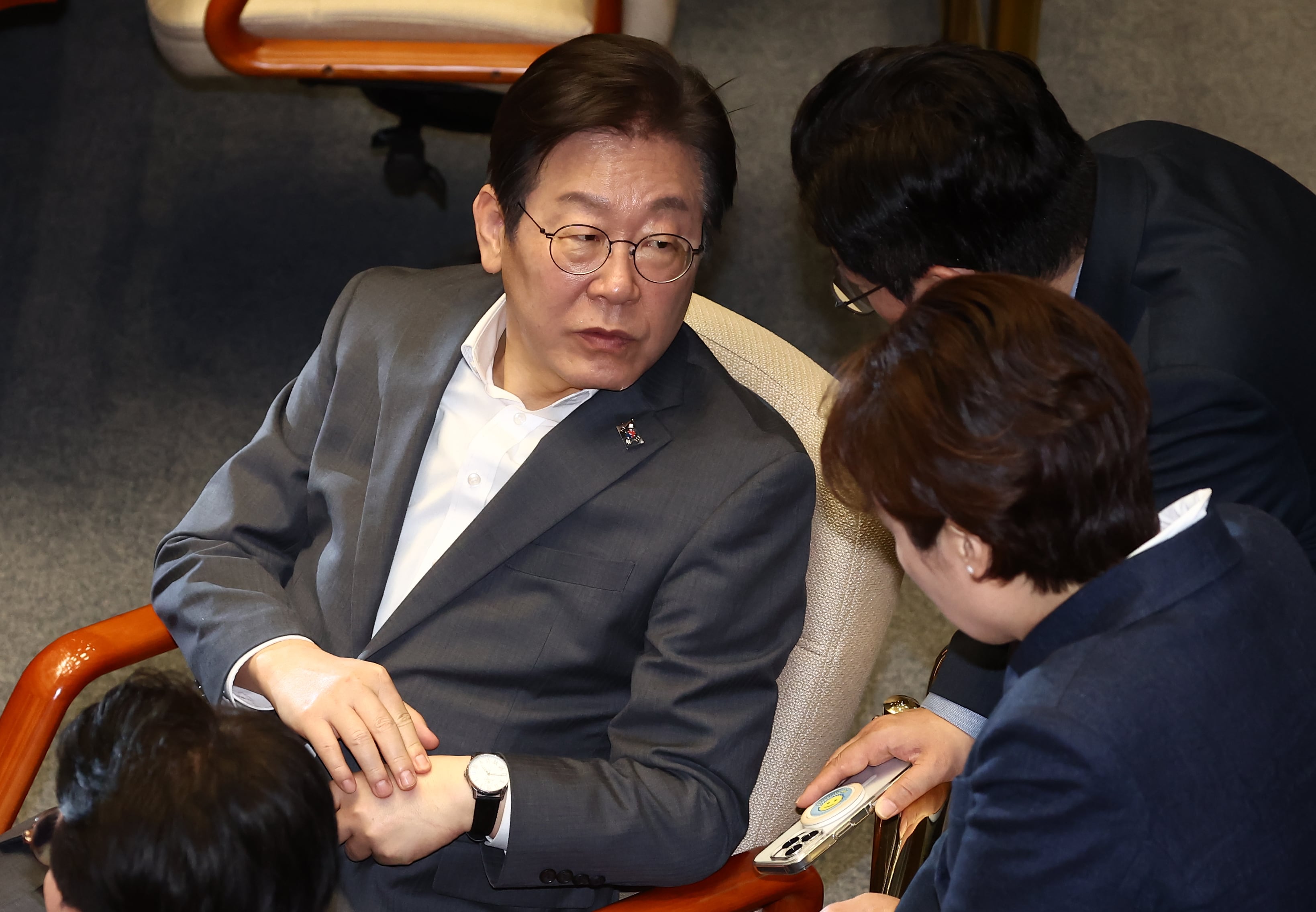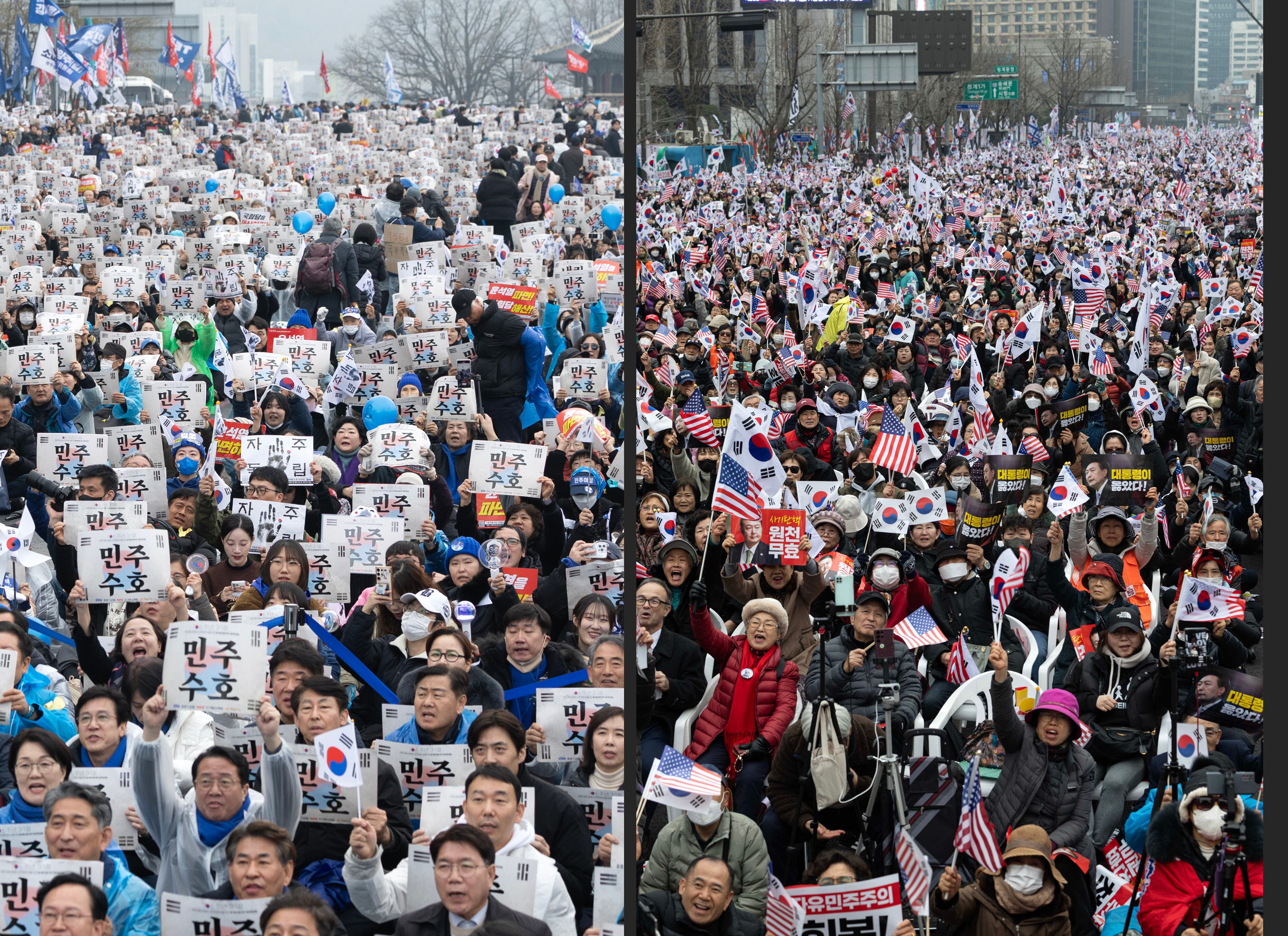The Constitutional Court will deliberate on Prime Minister Han Duck-soo’s impeachment on March 24, increasing the likelihood that a verdict on President Yoon Suk-yeol’s impeachment may be postponed. This timeline might further impact opposition leader Lee Jae-myung’s ongoing legal dispute, as an appeals court has scheduled their judgment for March 26.
Legal experts indicate that by prioritizing Han’s case, the court might be showing its intent to approach Yoon’s impeachment with greater caution. The timing of this judicial schedule is intricately linked to Lee’s legal challenges, as his prospects for future elections hinge on the result of his appeal.

In September 2022, Lee, who leads the principal opposing party known as the Democratic Party (DPK), faced indictment but remained free pending trial. The allegations against him involve providing inaccurate information, which contravenes the Public Official Election Act. These accusations arose from comments he made across four TV shows in December 2021 when he stated that he did not know Kim Moon-ki, formerly the chief of the development section at Seongnam Development Corporation, despite serving together as Seongnam’s mayor. Additionally, Lee was charged with misleading claims during an October 2021 session of the National Assembly, asserting that the Ministry of Land, Infrastructure and Transport coerced him into rezoning land for the Baekhyeon-dong redevelopment initiative.
In November 2024, a lower court convicted Lee to serve one year in prison along with a two-year suspension. Should the appellate court uphold a penalty of not less than 1 million won ($750) and the Supreme Court subsequently validate this decision, Lee would forfeit his position as a member of parliament and become ineligible for participation in future presidential elections. In case he chooses to appeal, the Supreme Court has until June 26—the statutory limit—to deliver its final judgment.
Should the Constitutional Court support Yoon’s impeachment, a new presidential election needs to be conducted within 60 days. If the decision comes in late March or early April, the election would likely take place in late May or early June.

Legal specialists are urging the Supreme Court to deliver a verdict prior to a potential sudden election, aiming to avoid political instability. A prominent high-court judge mentioned that should the justices come to an agreement, they might issue their decision before the polls open. Hwang Do-soo, who previously served as a rapporteur judge and currently teaches law at Konkuk University, stated that the nation’s severe partisan division arises largely from ambiguity surrounding Lee’s legal standing. He emphasized that expediting this ruling is crucial for maintaining order.
Criticism has been directed at the Constitutional Court due to its expedited handling of Yoon’s impeachment case, sparking worries about an overly hasty procedure. Certain legal experts speculate that the court might be rushing through Yoon’s case with the intention of allowing Lee to potentially join a sudden election. Nevertheless, postponing the verdict on Yoon until after the appeal judgment regarding Lee may assist the court in sidestepping these allegations.
Lee's legal advisors contend that a definitive decision from the Supreme Court prior to a presidential election would be unfeasible according to the Criminal Procedure Act. They assert that completing all required procedures, such as filing appeals and undergoing reviews, would require a minimum of one month. Additionally, experts disagree over whether current legal actions against Lee should be suspended if he secures the presidency.
Views on Lee’s appellate decision continue to differ. Some anticipate that the initial verdict of one year imprisonment with a two-year reprieve might stand, whereas others predict an acquittal or possibly a decreased penalty under the 1 million won limit, enabling Lee to keep his political rights intact. Additionally, the judiciary’s position regarding Lee’s dual constitutional objections throughout this appeal will be keenly observed.
A previous high-ranking prosecutor stated that making a quick judicial ruling serves the public’s best interests, guaranteeing that voters comprehend the legal status of presidential hopefuls prior to an election. "Given the extensive political consequences of their decisions, the Constitutional Court must consider multiple potential outcomes," he noted.


Post a Comment